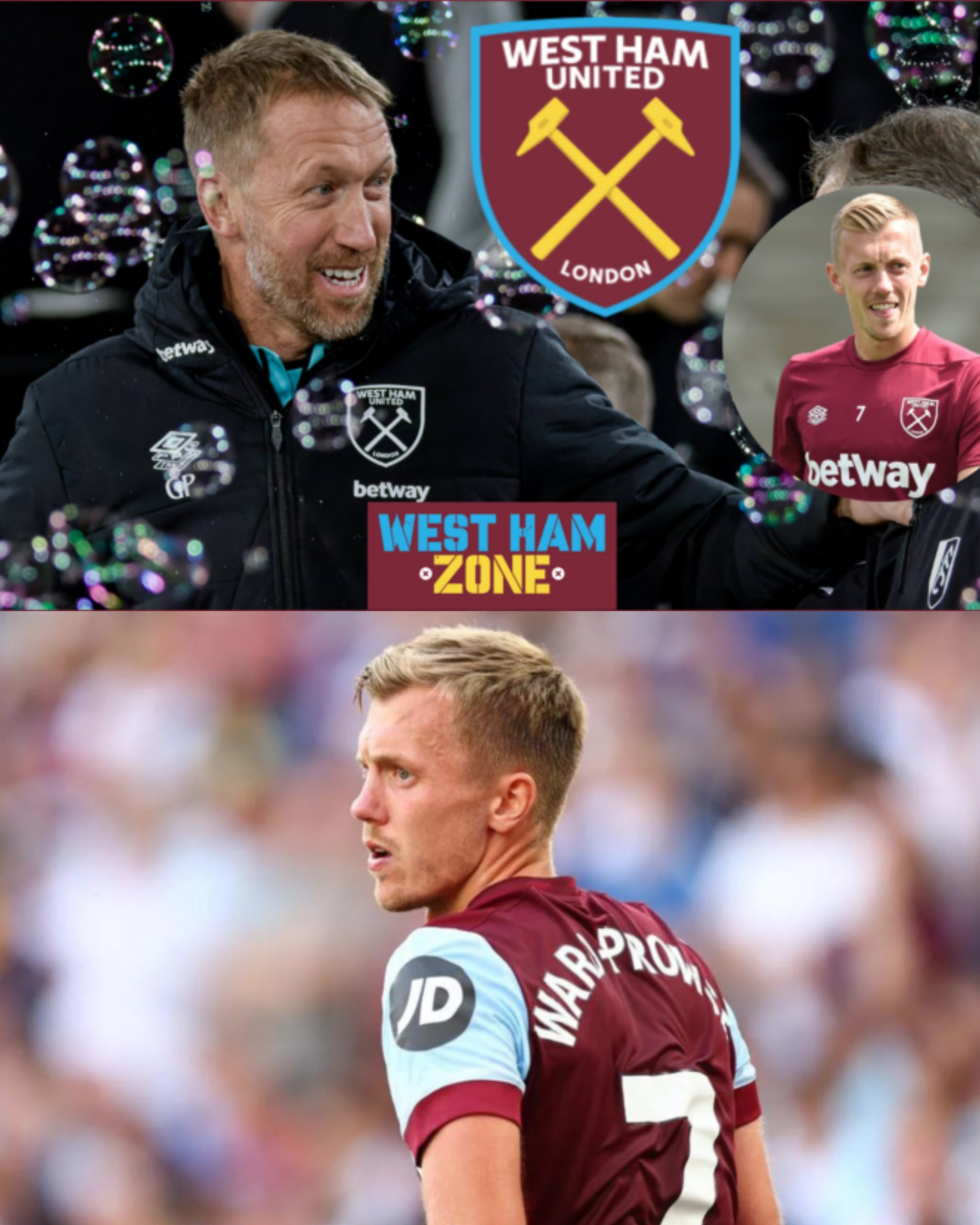West Ham United’s decision to recall James Ward-Prowse from his loan at Nottingham Forest has sparked plenty of discussion, with BBC Sport’s Phil McNulty believing the midfielder could “flourish” under new manager Graham Potter. Given the club’s financial constraints and ongoing midfield issues, bringing him back appears to be a practical solution to address their shortcomings in the middle of the park.
Ward-Prowse’s Role Under Potter
Ward-Prowse’s ability to dictate play from deep, deliver pinpoint set-pieces, and contribute goals from midfield makes him a valuable asset for any side. While he may not be the quickest or most dynamic midfielder, his footballing intelligence, passing range, and dead-ball expertise make him an ideal player for a possession-based system—something Potter is expected to implement at West Ham.
When Julen Lopetegui took charge at the start of the season, he quickly decided that Ward-Prowse did not fit his tactical plans, leading to his surprise loan move to Nottingham Forest. Instead, West Ham brought in Carlos Soler and Guido Rodríguez in an attempt to reshape their midfield. However, neither player has fully solved their midfield issues, and Ward-Prowse’s experience in English football, coupled with his technical qualities, could provide the stability the team has been missing.
A Fresh Start After a Difficult Loan Spell
At Forest, Ward-Prowse was expected to be a key figure in Nuno Espírito Santo’s plans, but instead, he found himself on the fringes of the team. Given his reputation and ability, a season of irregular football was not beneficial for either the player or his parent club. Now, returning to West Ham under a new manager in Potter, he has the opportunity to reclaim his place in the Premier League and prove his value once again.
Potter is known for his tactical flexibility and ability to maximize the potential of his players. His Brighton side often played with a structured but fluid midfield, something that could allow Ward-Prowse to thrive. If used correctly, he could become the creative spark West Ham need, particularly in games where they struggle to break teams down.
West Ham’s Smart January Business
Beyond Ward-Prowse, West Ham’s January transfer window also saw them bring in Evan Ferguson on loan from Brighton. McNulty praised this signing, calling Ferguson a “genuine talent” whose development has been hindered by injuries. Given Ferguson’s prior experience working with Potter at Brighton, the young Irish striker could be a perfect fit for the manager’s system. If Ferguson can stay fit, he could provide a much-needed goal-scoring boost for the Hammers in the second half of the season.
The Bigger Picture: Tim Steidten’s Uncertain Future
Another subplot in West Ham’s ongoing transformation is the position of technical director Tim Steidten. McNulty suggests that Steidten’s role has been in doubt for some time, particularly due to his strained relationships with former managers David Moyes and Julen Lopetegui. Now, with Potter in charge, the club may move in a new direction, potentially allowing the manager more influence over recruitment and squad planning. If Potter is given the freedom to build his squad, West Ham could undergo a significant shift in their long-term approach.
Can Ward-Prowse Make an Impact?
Ultimately, whether this move pays off depends on several factors. Ward-Prowse will need to quickly adapt to Potter’s system, while West Ham must ensure they provide the right structure around him to succeed. If he can rediscover the form that made him a standout performer at Southampton, this could prove to be a shrewd decision. His set-piece ability alone could be a game-changer for a team that has often relied on dead-ball situations to score goals.
In the short term, Ward-Prowse’s return makes sense, but West Ham’s long-term ambitions under Potter will require more than just temporary fixes. If the new manager is backed in the summer transfer window, this could be the beginning of a major transformation at the London Stadium.
What do you think—will Ward-Prowse flourish under Potter, or should West Ham have pursued a different midfield solution?
